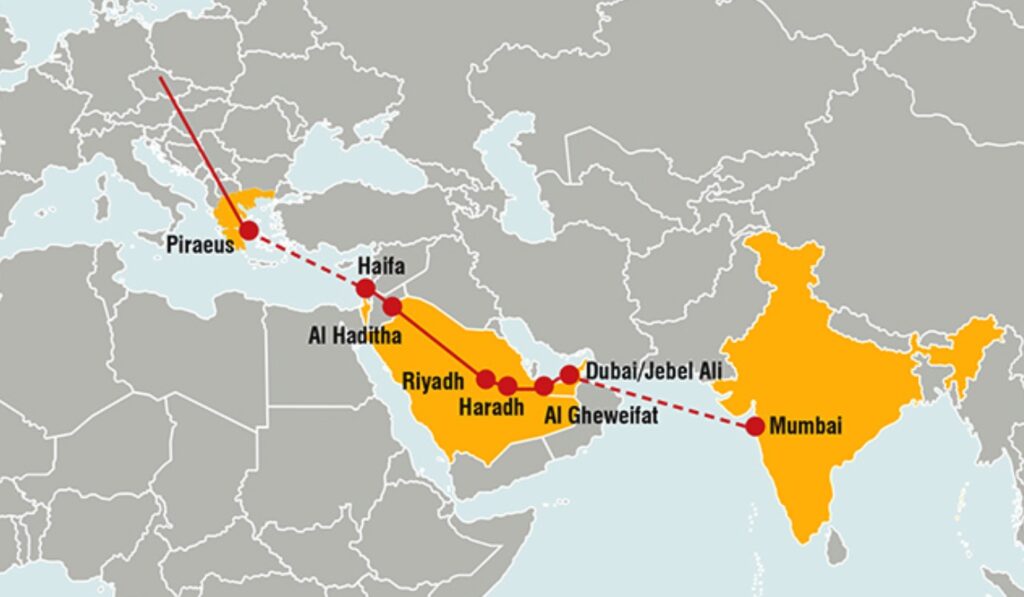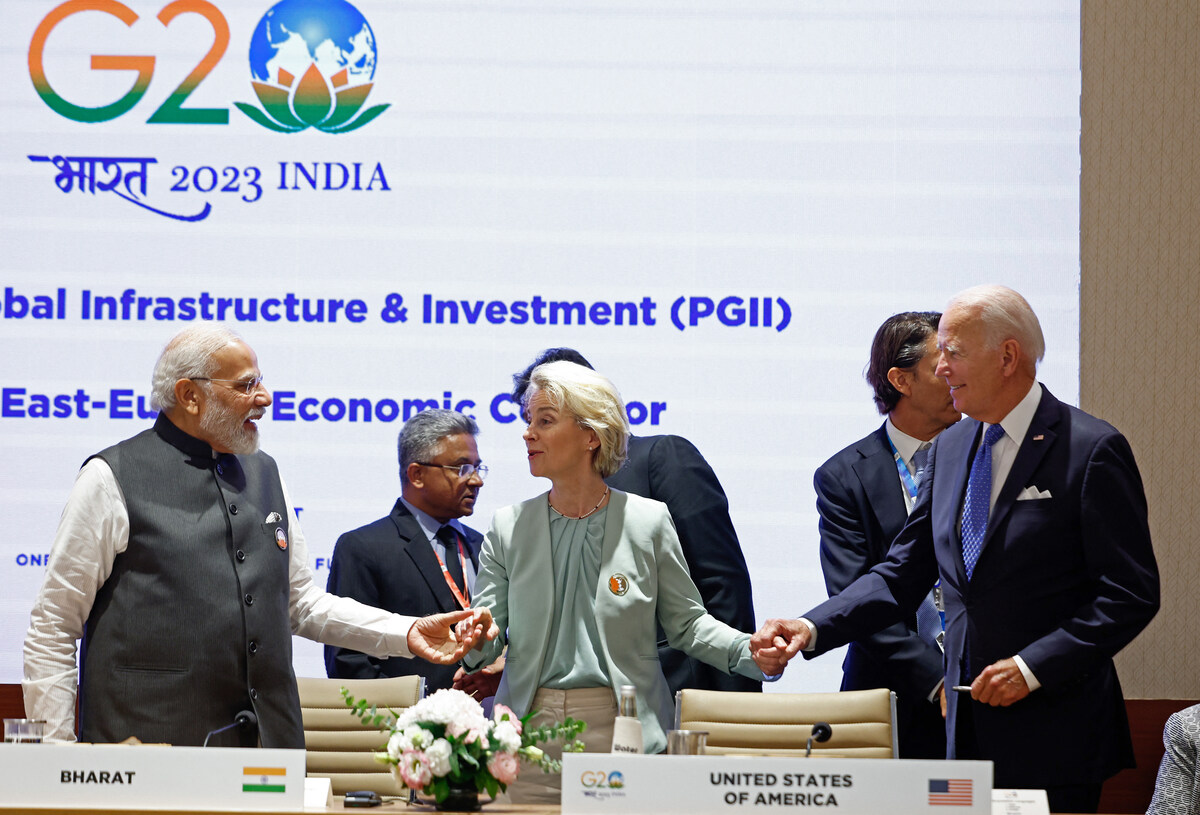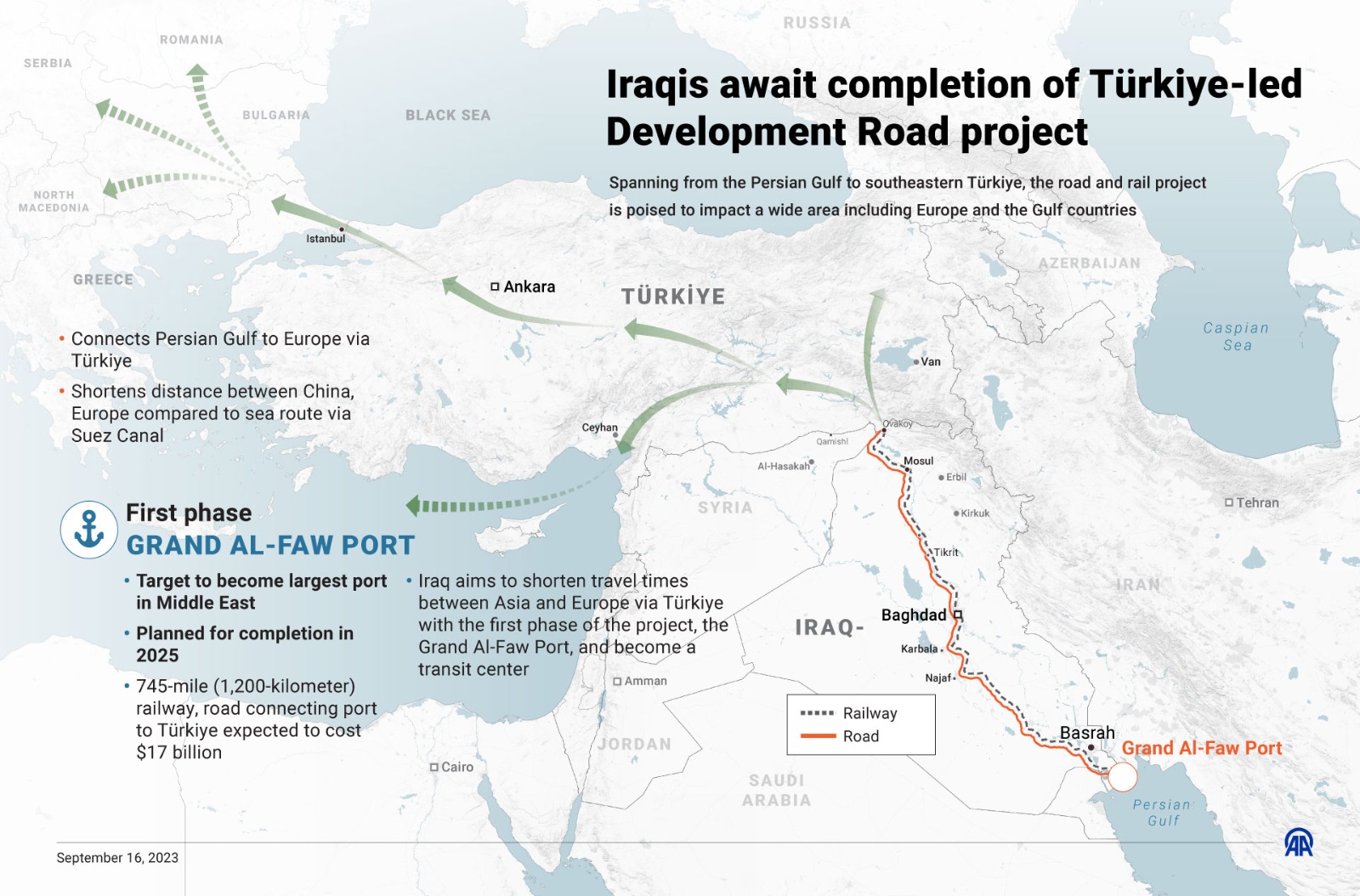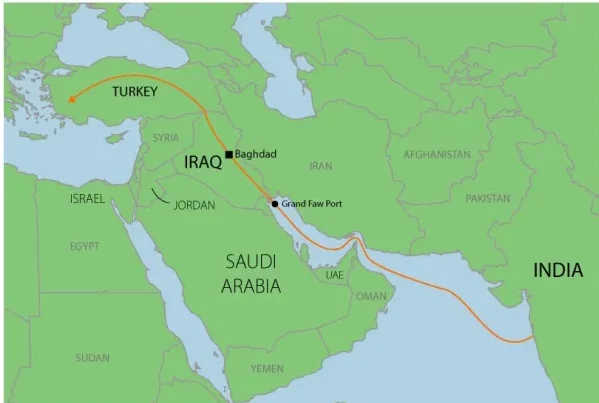Levent Kenez/Stockholm
The United States and the European Union at the G20 leaders’ summit in New Delhi on September 9 jointly introduced an ambitious initiative that seeks to establish a substantial economic corridor which would link Europe with the Middle East and India via rail and sea routes.
US President Joe Biden has described the project as a significant milestone. The proposed corridor that aims to connect India, Saudi Arabia, the United Arab Emirates (UAE), Jordan, Israel and the EU through strategically placed shipping ports and an extensive railway network also serves as a strategic counterbalance to China’s expansive Belt and Road projects.
However, Turkey is among the countries most concerned about the new plan. Turkey, whose geographical location, a cornerstone of its foreign policy, connects East and West, openly expressed its discomfort with the initiative, which it believes undermines its strategic image as a key player. Additionally, the fact that under the project goods enter Europe through Greece is another detail that is bothering Turkey.

Turkish President Recep Tayyip Erdogan on his return flight from India responded to a reporter’s question about whether the India-Middle East-Europe Economic Corridor (IMEC) proposed by the Indian prime minister could be considered a US-backed plan to counterbalance China’s Belt and Road Initiative. He said Turkey closely monitors developments concerning all corridors worldwide due to their its position.
Regarding the Belt and Road Initiative, Erdogan noted that China has made significant progress, and Turkey has also taken steps to participate in the Chinese initiative, particularly with newly finished rail projects.

He emphasized that they approach diplomacy within the framework of a win-win principle, assessing to what extent they can benefit from these alternate routes and what they can gain from them.
“Countries are striving to expand their commercial routes and broaden their regional influence. We say there can be no corridor without Turkey. The most suitable route for traffic from east to west must pass through Turkey,” he added.

He also highlighted an important step in a process undertaken by the Gulf countries in partnership with Turkey. Erdogan said they are discussing a corridor that goes from Iraq, Qatar and Abu Dhabi through Turkey to Europe. He stated that UAE leader Mohamed bin Zayed in particular showed strong determination for realization of the project, saying, “Let’s not delay this matter; let our colleagues finish the negotiations in 60 days and let’s lay the foundations and get on the road immediately.”
Erdogan said they share this excitement and have instructed Turkish Foreign Minister Hakan Fidan and Transport and Infrastructure Minister Abdulkadir Uraloğlu to proceed with the necessary meetings. He emphasized that this is not a small undertaking but that the UAE and Qatar are ready and that Turkey is also fully prepared.
The corridor that Erdogan is hopeful about is the Development Road, also known as the “New Silk Road,” a 1,200-kilometer (745 mile) transportation corridor comprising railways, motorways and pipelines. It will stretch from Iraq’s Faw Port in Basra to the Turkish port of Mersin. This project, with an estimated cost of $20 billion, aims to connect East and West, serving as an alternative to the Suez Canal. It aims to facilitate the transportation of goods, initially 3.5 million tons in the first phase and 7.5 million tons in the second, and boost the economies of Iraq and Turkey. Additionally Ankara is optimistic that it will enhance Turkey’s role as a transit hub between Asia and Europe and potentially connect the Gulf countries, Jordan and Iran to Europe.
According to the state-run Anadolu news agency, construction work on the initial phase of the Development Road project, specifically the Grand Faw Port in Basra, is progressing. The project encompasses both rail and road infrastructure, extending from the port through Diwaniyah, Najaf, Karbala, Baghdad and Mosul, ultimately providing a transportation route from the port to the Turkish border, providing access to the port of Mersin.
Italian company PEG is supervising the infrastructure of the Development Road, which is planned to enter Turkey through Ovaköy after reaching Mosul.
Turkey made a commitment during a 2018 conference in Kuwait, pledging a $5 billion financial support package for Iraq’s reconstruction and stability.
However, it is obvious that significant challenges lie ahead for its realization. Unlike the trade routes led by India, this project lacks international support. Additionally, given the current geopolitical context in which the West is looking for alternative routes to balance China, it remains doubtful whether this project will receive the necessary backing.
Iraq does not possess the financial means to undertake this project independently, and Turkey’s ability to provide the promised financial support in its current economic situation is uncertain. Moreover, Iraq’s unstable environment raises concerns regarding both the construction and security aspects of the project.
Experts have expressed reservations, noting that the Italian company awarded the contract for the road and rail lacks expertise in construction despite its specialization in the energy sector.
The fact that the route does not include the Kurdish region in northern Iraq is also considered a drawback. Observers are cautious about the successful operation of a route that doesn’t satisfy all stakeholders in Iraq.
Even within Turkish government-supported media outlets, there are concerns about the potential obstacles posed by terrorist groups in Iraq to the project’s progress.
Additionally, there is uncertainty surrounding the extent of concrete support from the UAE and Qatar, which President Erdogan has mentioned as backers of the project. While Saudi Arabia, a key player in the Gulf region, openly expressed support for the project during the G-20 summit and Crown Prince Mohammed bin Salman attended the launch event, the level of support from other Gulf nations remains unclear.
Turkish Foreign Minister Fidan said the Development Road project, extending from the Iraqi province of Basra to the Turkish border, is poised to enter its implementation phase in the coming months. Addressing attendees at the 10th World Turkish Business Council (DTIK) congress in Istanbul last week, Fidan underscored the project’s significance for prosperity and stability in the Middle East, stating, “We hope to transition to the implementation phase of the Development Road project within the next few months.”
Commenting on the agreement on IMEC reached at the recent G-20 summit in New Delhi, Fidan said, “Considering our strategic location at the crossroads of three continents, we remain receptive to any initiative that fosters collaboration,” adding, “However, it should be understood that in our region, the effective and sustainable operation of energy and transportation corridors without Türkiye’s involvement is not possible.”
Whether or not the Development Road project comes to fruition will also serve as a test for Fidan, who transitioned from leading the National Intelligence Organization (MİT) to the Ministry of Foreign Affairs in May.
Having recently engaged in discussions related to the project during visits to Iraq and Iran, Fidan is expected to soon visit the Gulf countries as well.












